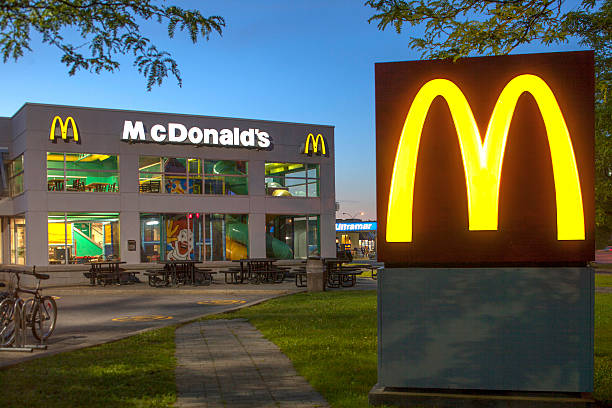
McDonald’s is not only a global fast-food leader but also a master at forming strategic local partnerships that enhance its operations and community presence. These partnerships span various sectors, including agriculture, real estate, marketing, and social responsibility. By collaborating with local businesses, suppliers, and organizations, McDonald’s can better adapt to regional preferences and needs, ensuring sustained success in diverse markets. This article explores some of the key local partnerships that have contributed to McDonald’s success.
Agricultural and Supplier Partnerships
Local Ingredient Sourcing
One of McDonald’s key strategies is sourcing ingredients locally whenever possible. This not only ensures fresher products but also supports local economies. For example:
- United States: McDonald’s partners with local farmers to source beef, potatoes, and dairy products, ensuring high quality and supporting American agriculture.
- Australia: McDonald’s Australia sources over 90% of its ingredients locally, including beef, wheat, lettuce, and tomatoes. This commitment to local sourcing enhances product freshness and supports Australian farmers.
Sustainable Farming Practices
McDonald’s collaborates with local suppliers to promote sustainable farming practices. These partnerships help ensure a consistent supply of high-quality ingredients while minimizing environmental impact. For example:
- Brazil: McDonald’s works with local beef suppliers to implement sustainable grazing practices, reducing deforestation and preserving natural habitats.
- Europe: In countries like Germany and France, McDonald’s partners with local farmers to source organic milk and free-range eggs, promoting animal welfare and sustainable agriculture.
Real Estate and Development Partnerships
Strategic Site Selection
McDonald’s collaborates with local real estate developers to secure prime locations for its restaurants. These partnerships help McDonald’s identify high-traffic areas, negotiate favorable lease terms, and ensure efficient construction and development. For example:
- China: McDonald’s has partnered with large real estate developers like China Resources Land to rapidly expand its footprint in urban centers and key commercial districts.
- India: In India, McDonald’s works with local developers to identify strategic locations for new restaurants, particularly in bustling cities and emerging markets.
Local Construction and Design Firms
By partnering with local construction and design firms, McDonald’s can ensure that its restaurants meet regional standards and aesthetics. These collaborations help streamline the construction process and ensure that each restaurant aligns with local architectural styles and cultural preferences.
Marketing and Promotional Partnerships
Collaboration with Local Celebrities and Influencers
McDonald’s frequently partners with local celebrities and influencers to create targeted marketing campaigns. These collaborations help McDonald’s resonate with regional audiences and enhance brand visibility. For example:
- Japan: McDonald’s Japan has collaborated with popular local celebrities like Haruna Kawaguchi and Arashi for marketing campaigns, boosting brand appeal among Japanese consumers.
- India: In India, McDonald’s has partnered with Bollywood stars and regional influencers to promote new menu items and special offers, increasing customer engagement.
Local Events and Sponsorships
Sponsoring local events and festivals is another effective strategy for McDonald’s. These partnerships help McDonald’s connect with communities and enhance its brand presence. For example:
- United States: McDonald’s sponsors local sports teams, school events, and community festivals, reinforcing its commitment to local communities.
- Brazil: In Brazil, McDonald’s sponsors major events like Carnival and local music festivals, creating positive associations with the brand.
Community and Social Responsibility Partnerships
Ronald McDonald House Charities (RMHC)
Ronald McDonald House Charities (RMHC) is a cornerstone of McDonald’s community engagement efforts. RMHC provides housing and support for families with seriously ill children, allowing them to stay close during medical treatments. This partnership demonstrates McDonald’s commitment to social responsibility and community support. RMHC operates globally, with local chapters tailoring their services to meet regional needs.
Environmental Initiatives
McDonald’s partners with local environmental organizations to promote sustainability and reduce its environmental footprint. These collaborations include initiatives like waste reduction, recycling programs, and sustainable packaging. For example:
- United Kingdom: McDonald’s UK partners with organizations like Keep Britain Tidy to promote litter reduction and recycling.
- Australia: McDonald’s Australia collaborates with Planet Ark to support recycling and environmental education programs.
Educational and Employment Programs
McDonald’s invests in local educational and employment programs to support workforce development and community growth. These partnerships provide valuable training and job opportunities for local residents. For example:
- United States: McDonald’s Archways to Opportunity program offers tuition assistance, career advising, and English language courses to employees, enhancing their career prospects and personal development.
- Germany: McDonald’s Germany partners with local vocational schools to offer apprenticeships and training programs, helping young people gain valuable skills and experience.
Conclusion
Local partnerships are a critical component of McDonald’s success, allowing the brand to adapt to regional preferences, support local economies, and enhance community engagement. By collaborating with local suppliers, real estate developers, marketing firms, and community organizations, McDonald’s can better serve its customers and maintain its position as a global fast-food leader. These partnerships not only drive operational efficiency and brand loyalty but also demonstrate McDonald’s commitment to social responsibility and sustainable growth.
FAQs
Q: How does McDonald’s benefit from local ingredient sourcing?
A: Local ingredient sourcing ensures fresher products, supports local economies, and reduces environmental impact. It also helps McDonald’s maintain high quality and cater to regional tastes.
Q: What role do local celebrities and influencers play in McDonald’s marketing strategy?
A: Local celebrities and influencers help McDonald’s create targeted marketing campaigns that resonate with regional audiences, enhancing brand visibility and customer engagement.
Q: How does McDonald’s support local communities through its partnerships?
A: McDonald’s supports local communities through partnerships with organizations like Ronald McDonald House Charities, environmental groups, and educational programs, demonstrating its commitment to social responsibility and community growth.
Q: Why are real estate partnerships important for McDonald’s?
A: Real estate partnerships help McDonald’s secure prime locations, negotiate favorable lease terms, and ensure efficient construction and development, contributing to the brand’s expansion and success in various markets.